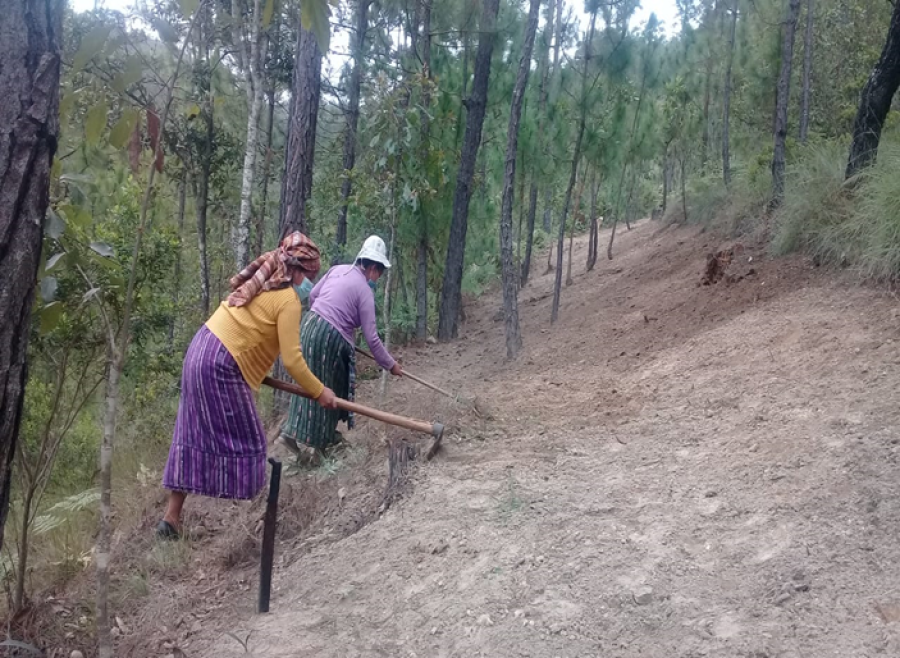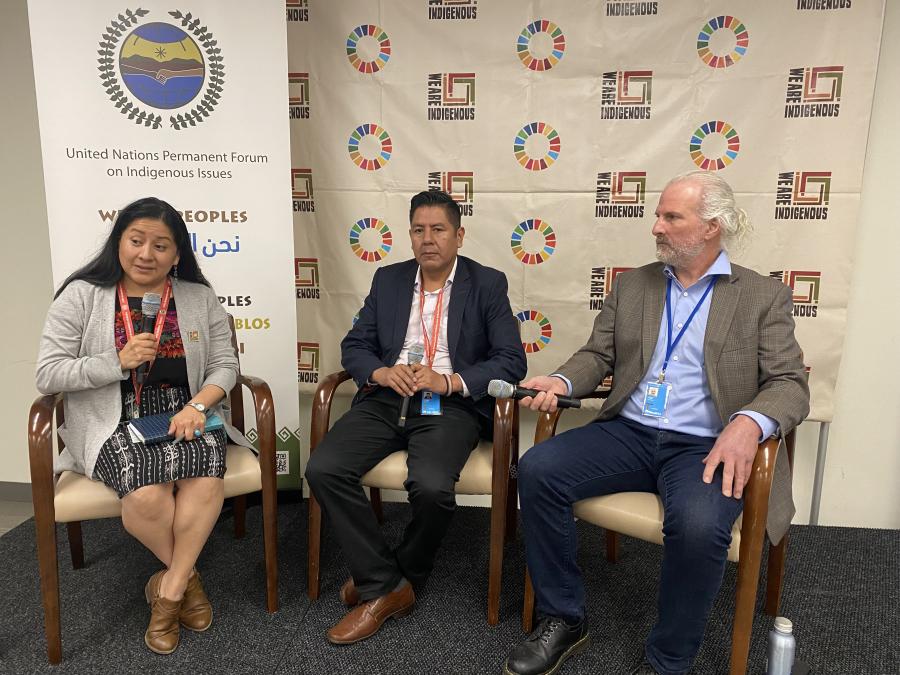
By Alex Glomset
In the absence of an Indigenous rights treaty body, the UN Committee on Economic, Social, and Cultural Rights (CESCR) has discussed many of the issues involving Indigenous Peoples in the reviews of applicable countries. Guatemala, whose Mayan population accounts for an estimated 51 percent of its total population, has historically had many issues regarding Indigenous Peoples. During Guatemala’s third review of its commitment to the International Covenant on Economic, Social, and Cultural Rights on November 18, 2014 during the CESCR's 53rd session, Guatemala’s progress on its Indigenous rights issues was at the forefront of the discussion.
Members of the Committee asked several questions regarding Indigenous rights before the delegation was given an opportunity to respond. One of the committee members asked about Indigenous Peoples’ access to justice, and what provisions the Guatemalan government has to allow Indigenous Peoples to follow trials through the use of interpreters. A second committee member asked about the changes to constitutional reform that would recognize Indigenous Peoples. Specifically, the committee member was concerned on how exactly Indigenous Peoples would be recognized, and if the committee could elaborate on its strategy. A third question was asked by a committee member who was concerned about the high rates of unemployment for Indigenous People and what plans the government had to stimulate employment.
The delegation chose to not answer the first or third question, but was quick to respond that through the implementation of ILO Convention 169, Indigenous rights would be recognized and respected. Guatemala had chosen a committee to look into the various aspects of implementation of ILO Convention 169. According to the delegation, a technical document had been requested so that they committee could consult the Indigenous groups. However, the meeting that instructed this was the day before Guatemala’s review before the CESCR, so the proposed document was not finished and the Indigenous Groups had not been consulted.
The next round of questions by the committee members also referenced some of the issues in Guatemala that affected Indigenous Peoples. One committee member brought up the rates of malnutrition amongst children in Guatemala, which is at 43%, but the rate of Indigenous children with malnutrition was as high as 80 percent. There were many cases of malnutrition related deaths, which was truly sobering to the committee. The committee member asked what the Guatemalan delegation’s response was to these facts.
Other committee members built off of the previous question, asking the delegation what measures the government had in place for accessibility to health care in for Indigenous groups, particularly those in rural areas. This question was also extended to talk about what specific measures the government had for vulnerable groups such as women and children for health and reproductive care as well as how the government was addressing the prevalent poverty faced by Indigenous groups in Guatemala.
Another question that was asked was regarding any mechanism in place for issuance of land titles to Indigenous Peoples and if so, how many of these land titles were issued annually.
The final question regarding Indigenous rights that was asked before the delegation was given an opportunity to respond was how the government was combatting obstacles to access to schools and adequate education for Indigenous Peoples and peoples in rural areas.
The delegation responded to the plethora of Indigenous rights related questions by stating that Indigenous rights issues were important and understood in Guatemala. The delegation then went on a tangent about general implementation of human rights related laws and did not mention Indigenous rights for the remainder of the meeting.
In the conclusion of the meeting, the head of then Guatemalan delegation thanked the Committee for its questions, but stated that it regretted that some committee’s member’s comments were not in line with the ICESCR standards. The Committee Chairman referenced this comment in his conclusion stating that no comment made by any committee member would justify the remark made by the delegation.
The third review of Guatemala by the CESCR showed that though progress had been made since its first and second review, the Guatemalan government could have made much more progress. Whether or not the concluding comment by the delegation representative about inappropriate comments was referencing the questions regarding Indigenous rights, the delegation of Guatemala did not adequately answer many of the questions about Indigenous rights issues. In fact, the delegation avoided discussing many of the questions that talked about specific legislation regarding Indigenous Peoples and the issues surrounding them.
The one positive that can be taken from the discussion is that the Guatemalan government has ratified ILO Convention 169, though it was nearly two decades ago. The delegations response regarding the implementation of ILO Convention 169 seemed impressive initially, however, not much progress had been made to the implementation of ILO Convention 169 since Guatemala’s ratification in 1996. It is disappointing that progress was not made towards the implementation between the second and third review of Guatemala by the CESCR in 2003 and 2014 respectively.
It is therefore essential that these issues be discussed at Guatemala’s review for CEDAW and CRC whose covenants both reference Indigenous groups. Otherwise, the unenforceable nature of human rights treaty bodies has allowed for another delegation to walk away from its severe human rights record by just merely refusing to answer the questions given by the committee.


